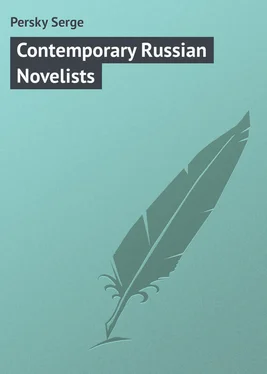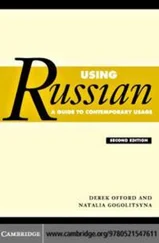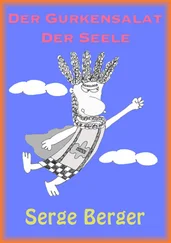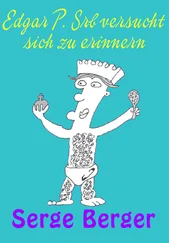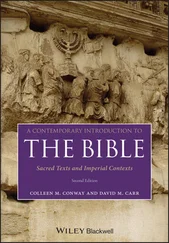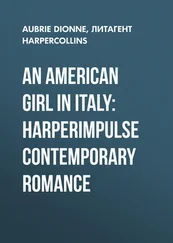Serge Persky - Contemporary Russian Novelists
Здесь есть возможность читать онлайн «Serge Persky - Contemporary Russian Novelists» — ознакомительный отрывок электронной книги совершенно бесплатно, а после прочтения отрывка купить полную версию. В некоторых случаях можно слушать аудио, скачать через торрент в формате fb2 и присутствует краткое содержание. Жанр: Русская классическая проза, на английском языке. Описание произведения, (предисловие) а так же отзывы посетителей доступны на портале библиотеки ЛибКат.
- Название:Contemporary Russian Novelists
- Автор:
- Жанр:
- Год:неизвестен
- ISBN:нет данных
- Рейтинг книги:3 / 5. Голосов: 1
-
Избранное:Добавить в избранное
- Отзывы:
-
Ваша оценка:
- 60
- 1
- 2
- 3
- 4
- 5
Contemporary Russian Novelists: краткое содержание, описание и аннотация
Предлагаем к чтению аннотацию, описание, краткое содержание или предисловие (зависит от того, что написал сам автор книги «Contemporary Russian Novelists»). Если вы не нашли необходимую информацию о книге — напишите в комментариях, мы постараемся отыскать её.
Contemporary Russian Novelists — читать онлайн ознакомительный отрывок
Ниже представлен текст книги, разбитый по страницам. Система сохранения места последней прочитанной страницы, позволяет с удобством читать онлайн бесплатно книгу «Contemporary Russian Novelists», без необходимости каждый раз заново искать на чём Вы остановились. Поставьте закладку, и сможете в любой момент перейти на страницу, на которой закончили чтение.
Интервал:
Закладка:
Excluded from journalism, this satiric tendency took refuge in literature, where the novel and the story trace the incidents of daily life. Since the writers could not touch the evil at its source, they showed its consequences for social life. They represented with eloquence the empty and deplorable banality of the existence forced upon most of them. By expressing in various ways general aspirations towards something better, they let literature continue its teaching, even in times particularly hostile to freedom of thought, like the reign of Nicholas I, the most typical and decided adversary of the freedom of the pen that Europe has ever seen. Literature was, then, considered as an inevitable evil, but one from which the world wanted to free itself; and every man of letters seemed to be under suspicion. During this reign, not only criticisms of the government, but also praises of it, were considered offensive and out of place. Thus, the chief of the secret police, when he found that a writer of that time, Bulgarine, whose name was synonymous with accuser and like evils, had taken the liberty to praise the government for some insignificant improvements made on a certain street, told him with severity: "You are not asked to praise the government, you must only praise men of letters."
Nothing went to print without the authorization of the general censor, an authorization that had to be confirmed by the various parts of the complex machine, and, finally, by a superior committee which censored the censors. The latter were themselves so terrorized that they scented subversive ideas even in cook-books, in technical musical terms, and in punctuation marks. It would seem that under such conditions no kind of literature, and certainly no satire, could exist. Nevertheless, it was at this period that Gogol produced his best works. The two most important are, his comedy "The Revizor," where he stigmatizes the abuses of administration, and "Dead Souls," that classic work which de Vogüé judges worthy of being given a place in universal literature, between "Don Quixote" and "Gil Blas," and which, in a series of immortal types, flagellates the moral emptiness and the mediocrity of life in high Russian society at that time.
At the same time, Griboyedov's famous comedy, "Intelligence Comes to Grief," which the censorship forbade to be produced or even published, was being circulated in manuscript form. This comedy, a veritable masterpiece, has for its hero a man named Chatsky, who was condemned as a madman by the aristocratic society of Moscow on account of his independent spirit and patriotic sentiments. It is true that in all of these works the authors hardly attack important personages or the essential bases of political organization. The functionaries and proprietors of Gogol's works are "petites gens," and the civic pathos of Chatsky aims at certain individuals and not at the national institutions. But these attacks, cleverly veiling the general conditions of Russian life, led the intelligent reader to meditate on certain questions, and it also permitted satire to live through the most painful periods. Later, with the coming of the reforms of Alexander II, satire manifested itself more openly in the works of Saltykov, who was not afraid to use all his talent in scourging, with his biting sarcasm, violence and arbitrariness.
Another salient trait of Russian literature is its tendency toward realism, the germ of which can be seen even in the most old-fashioned works, when, following the precepts of the West, they were taken up first with pseudo-classicism, and then with the romantic spirit which followed.
Pseudo-classicism had but few worthy representatives in Russia, if we omit the poet Derzhavin, whom Pushkin accused of having a poor knowledge of his mother tongue, and whose monotonous work shows signs of genius only here and there.
As to romanticism! Here we find excellent translations of the German poets by Zhukovsky, and the poems of Lermontov and Pushkin, all impregnated with the spirit of Byron. But these two movements came quickly to an end. Soon realism, under the influence of Dickens and Balzac, installed itself as master of this literature, and, in spite of the repeated efforts of the symbolist schools, nothing has yet been able to wipe it out. Thus, the triumph of realism was not, as in the case of earlier tendencies, the simple result of the spirit of imitation which urges authors to choose models that are in vogue, but it was a response to a powerful instinct. The truth of this statement is very evident in view of the fact that realism appeared in Russian literature at a time when it was still a novelty in Europe. The need of representing naked reality, without any decorations, is, so to speak, innate in the Russian author, who cannot, for any length of time, be led away from this practice. This is the very reason why the Byronian influence, at the time of Pushkin and Lermontov, lasted such a short time. After having written several poems inspired by the English poet, Pushkin soon disdained this model, which was the sole object of European imitation. "Byron's characters," he says, "are not real people, but rather incarnations of the various moods of the poet," and he ends by saying that Byron is "great but monotonous." We find the same thing in Lermontov, who was fond of Byron, not only in a transient mood of snobbery, but because the very strong and sombre character of his imagination naturally led him to choose this kind of intense poetry. He was exerting himself to regard reality seriously and to reproduce it with exactitude, at the very time when he was killed in a duel at the youthful age of twenty-seven.
Pushkin's best work, his novel in verse, "Evgeny Onyegin," although it came so early, was constructed according to realistic principles; and although we still distinguish romantic tints, it is a striking picture of Russian society at the beginning of the 19th century. We find the same tendency in Lermontov's prose novel, "A Hero of Our Times," in which the hero, Pechorin, has many traits in common with Evgeny Onyegin. This book immediately made a deep impression. It was really nothing more than a step taken in a new direction by its author. But it was a step that promised much. An absurd fatality destroyed this promise, and hindered the poet, according to the expression of an excellent critic of that time, from "rummaging with his eagle eye, among the recesses of the world."
The works of writers of secondary rank, contemporaneous with the above mentioned, also reveal a realistic tendency. Then appeared, to declare it with a master's power, that genius of a realist, of whom we have already made mention, Gogol. There was general enthusiasm; Gogol absorbed almost the entire attention of the public and men of letters. The great critic and publicist Byelinsky, in particular, took it upon himself to elaborate in his works the theories of realism; he formulated the program about 1850 under the name of the "naturalistic school." Thus the germs of the past had expanded triumphantly in the work of Gogol, and the way was now clear for Turgenev, Dostoyevsky, Tolstoy, Goncharov, Ostrovsky, and Pisemsky, who, while enlarging the range and perfecting the methods of the naturalistic school, conquered for their native literature the place which it has definitely assumed in the world.
Although we may infer that Russian realism has its roots in a special spiritual predilection, we must not nevertheless forget the historical conditions which prepared the way for it and made its logical development easy. Russian literature, called on to struggle against tremendous obstacles, could hardly have gone astray in the domain of a nebulous idealism.
The third distinctive trait of this literature is found in its democratic spirit. Most of the heroes are not titled personages; they are peasants, bourgeois, petty officials, students, and, finally, "intellectuals." This democratic taste is explained by the very constitution of Russian society.
Читать дальшеИнтервал:
Закладка:
Похожие книги на «Contemporary Russian Novelists»
Представляем Вашему вниманию похожие книги на «Contemporary Russian Novelists» списком для выбора. Мы отобрали схожую по названию и смыслу литературу в надежде предоставить читателям больше вариантов отыскать новые, интересные, ещё непрочитанные произведения.
Обсуждение, отзывы о книге «Contemporary Russian Novelists» и просто собственные мнения читателей. Оставьте ваши комментарии, напишите, что Вы думаете о произведении, его смысле или главных героях. Укажите что конкретно понравилось, а что нет, и почему Вы так считаете.
